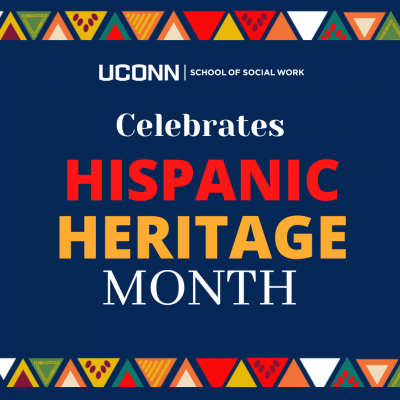Jelan Agnew, LCSW, founder of Nalej of Self, LLC. Class of 2011, clinical concentration.
- Brief description about yourself and career path.
Jelan Agnew, LCSW is a 2022 Hartford Business Journal Top 40 Under Forty Honoree, highly rated TEDx Speaker and Licensed Clinical Social Worker. Jelan has 11+ years of experience as a Therapist, Adjunct Professor and Workshop/Training facilitator. Founder of Nalej of Self, LLC, she works with organizations to teach mindfulness as a skill to address burn out, compassion fatigue and feeling stuck in survival mode. Nalej of Self, LLC offers Corporate Mindfulness Workshops, DBT Training, Motivational Speaking, Coaching and Courses. Jelan sees authenticity as her superpower, and uses her expertise as a Dialectical Behavioral Therapist, to empower people to be an active participant in building a life worth living.
- Tell us about your hobbies
My hobbies include meditation, traveling, making tiktoks, being outside in nature, singing and dancing.
- Why did you choose social work as a profession?
I feel like social work chose me! I swore I would never get into this field, as my mother has been a social worker for 20+ years. But once I accepted my first role in the field, working with clients became my passion. I’ve had the honor of working with some of the most kind, loving and amazing humans doing this work. It’s truly an honor.
- What impact has your UConn social work education had on your life?
First, let me say, UConn took a chance with me. My undergrad GPA was fairly low, and I was let in as a provisional student. So the first lesson UConn school of social work taught me, was that everyone deserves a chance for change. In addition, my UConn social work education has taught me to have a strength based lens when approaching situations.
- What was your favorite moment at UConn SSW?
Graduation day! It was a huge accomplishment. Also, learning the history of social work and making sure I am being an agent of change.
![]()

